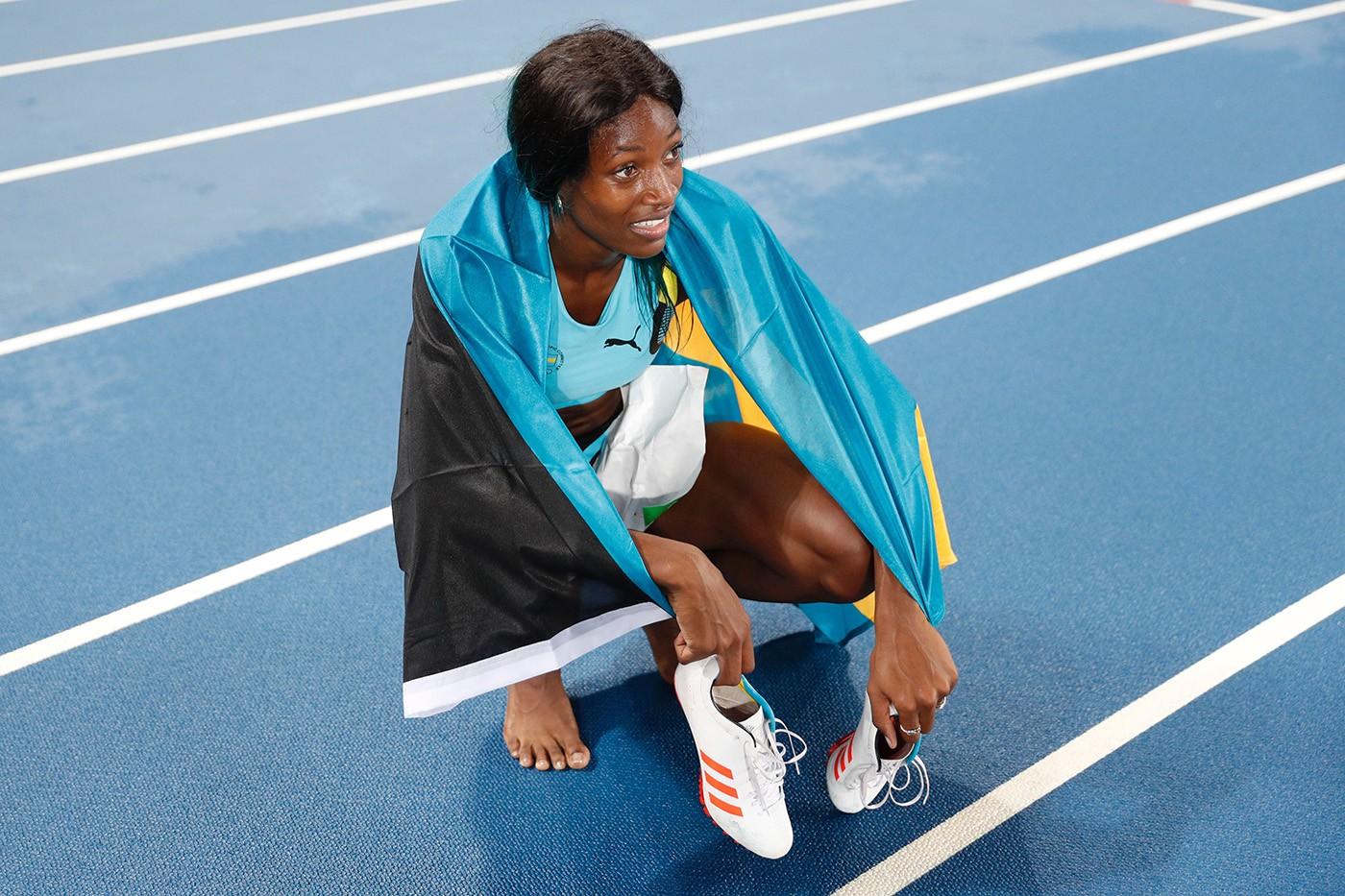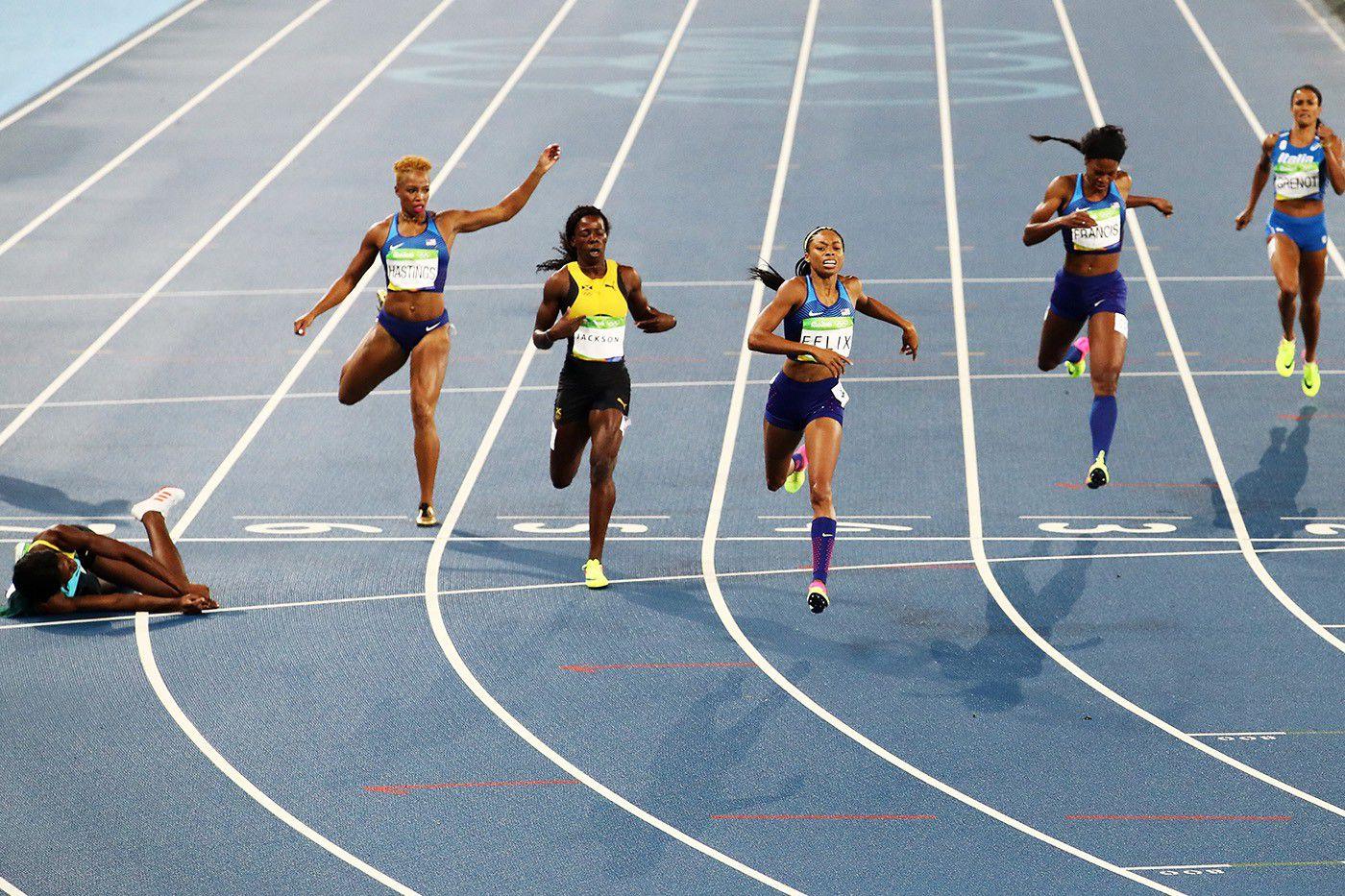
Some facts about Shaunae Miller’s gold medal–winning dive: (1) It deprived Allyson Felix of the top spot on the podium, (2) it sent many casual American fans into a rage, (3) it was perfectly legal, and (4) it was glorious.
In Monday night’s 400-meter final, the 22-year-old Miller got off to an early lead; with 200 meters left , the race seemed like it was the Bahamian sprinter’s to lose. But then Felix came barreling forward to seemingly claim the fifth Olympic gold medal we’d all been told was hers. “She can sense history!” called the announcer, as the 30-year-old loped closer and closer to the finish line. But Miller hung on, and just as the two women neared the line, she suddenly tumbled forward, skidding headfirst down the track. With a 49.44-second finish, she had done it: Miller, who days earlier served as her nation’s flag-bearer, won gold. Losing by 0.07 seconds, Felix will merely be the United States’ most decorated female runner of all time, adding a silver to her cache of six medals from three previous games. A cry of holy shit rang out over at least two countries.

But does diving at the finish line even work? The evidence suggests not really. Many experts say that it actually detracts from momentum, decelerating runners when they mean to do the opposite. It’s often compared to sliding into first base, a showy tactic that rankles the opposition but only rarely is successful. In the case of running, it carries the added risk of injury.
This hasn’t stopped runners from occasionally trying anyway. It has at times been successful, notably in the case of Jeff Porter, who at the 2012 U.S. Olympic trials flung himself over the line, past two-time NCAA champion Antwon Hicks and David Oliver, at the time the American 110-meter hurdle record-holder. Porter earned a third-place finish and a slot at the London Olympics thanks to the move, which he had been steeling himself for all along: “I told these guys that if it’s close,” he said afterward, “I am diving across the line.” Porter, who failed to medal both in London and at this week’s 110-meter hurdles, was joined at the 2012 qualifier by Bershawn Jackson, whose dive in a separate race was less successful. As they neared the finish line, Porter and Jackson were both likely thinking of David Neville III, whose dive in the 400-meter final of the 2008 Olympics clinched a bronze medal.
For all the uproar following Miller’s victory on social media, diving is a tactic that’s widely defended by runners. After all, the goal of a race is not to finish on your feet. It’s to get your torso across the line before anyone else. Diving at the finish line has the explicit endorsement of USA Track & Field, whose official profile of Porter begins, “Diving across the finish line in heroic fashion, Jeff Porter placed third in the 110m hurdles at the 2012 Olympic Trials and qualified for the London Olympic Games.” If Porter’s act of desperation was the mark of a hero, then Miller’s ought to qualify her as one, too.
And this, after all, is what the Olympics are about. Within the parameters of the rules, do whatever you can — whatever you can — to earn a spot on the podium. Would Miller have beaten Felix anyway had she not taken a dive? Maybe. Would Felix’s chances have been any better had she tried a dive herself? Probably not. But in Miller’s dive, we were treated to a show of the kind of passion that Olympic teasers are made of — a moment of recklessness and hope after a lifetime of training and sacrifice. It was fair, it was magnificent, and it was a reminder of what we all came to see in the first place.
An earlier version of this piece misstated what part of a runner’s body must cross a finish line; it is the torso, and not simply any part of the body.

